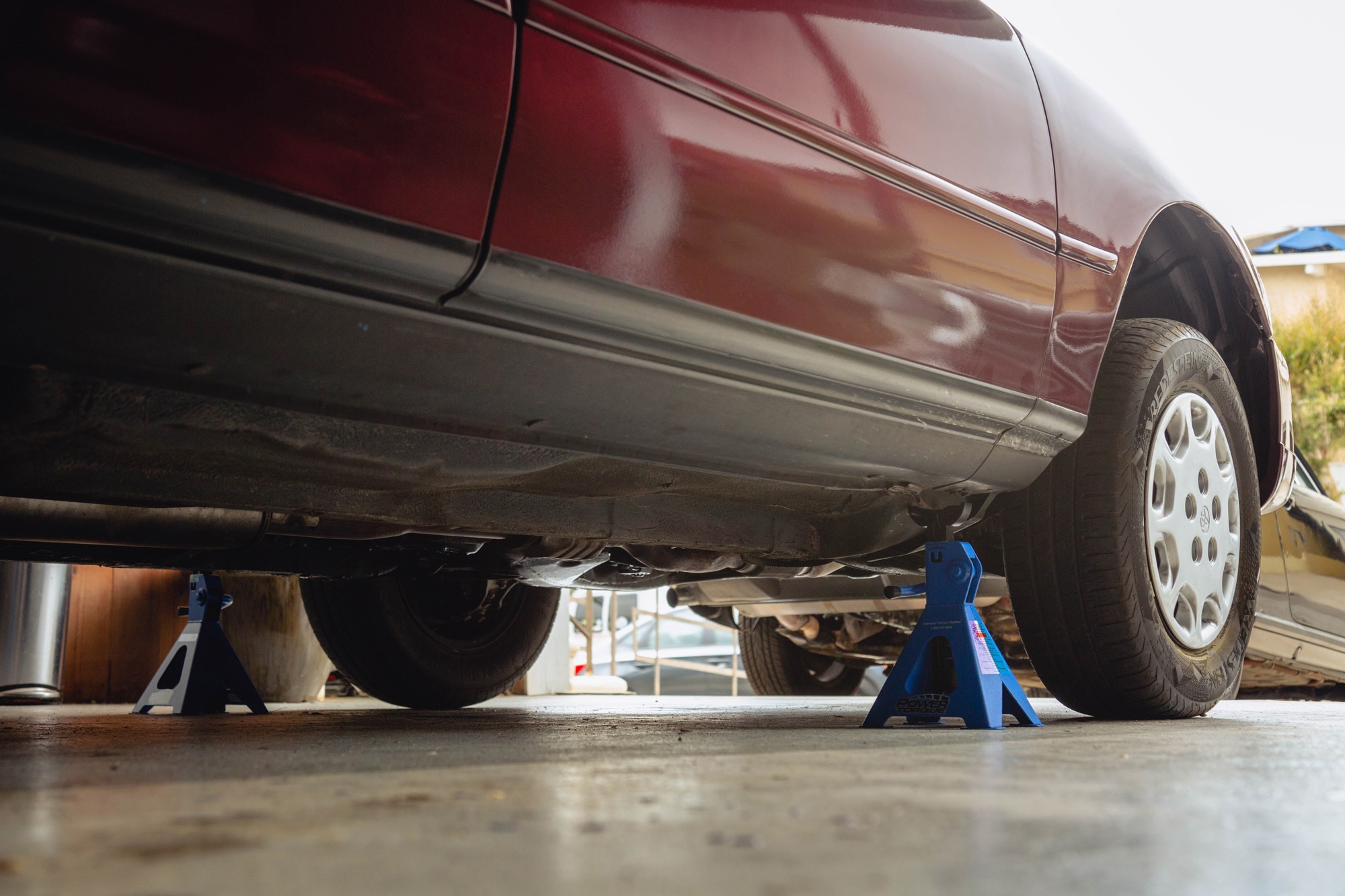What You Need to Know About Rotating Your Car's Tires
Maintenance for where the rubber meets the road.
 Manuel Carrillo | Capital One
Manuel Carrillo | Capital One
Most drivers know that their car requires routine maintenance such as oil changes and filter replacements, but many don't realize that their tires require regular care, too. Tire rotations are part of a vehicle's care, and they're crucial for tire performance and longevity.
Tire Rotations Help Extend the Life of Your Car's Tires
A tire rotation is a service that involves moving a vehicle's wheels and tires from one position on the car to another. Tire rotations are usually performed at certain mileage intervals and help promote even tread wear across all four tires.
Despite rolling in unison, your car's tires don't wear evenly. A number of factors can affect a tire's rate of wear, including driving habits, the vehicle's weight distribution, and even the position of the tire on the vehicle.
For example, front tires are tasked with steering, which subjects them to forces that the rear tires don't have to endure. As a result, the outer edges of front tires typically wear faster than their rear counterparts. Regular rotations help even out those types of wear irregularities.
Regular Tire Rotations Can Make Cars Safer
Tire rotations help ensure even wear and help maximize vehicle safety. Uniform tread depth across all four tires contributes to predictable handling, particularly in inclement weather. Evenly worn tires also allow your car's braking system to operate at peak efficiency.
There are financial benefits, too. Regular rotations can prolong the useful life of your tires, so you can cover more miles before purchasing a new set. Proper tire maintenance can also lead to better fuel economy — or battery range, in the case of an EV.
Drive Wheels Matter When It Comes to Tire Rotation
Each make and model is different, so it's best to consult your vehicle's user manual to determine how often to rotate your tires. In general, it's smart to rotate your tires every 5,000 to 7,500 miles. If keeping track of miles isn't your thing, you can simply rotate your tires every other oil change.
Outside of a regular maintenance window, you can perform a tire rotation if you notice uneven wear.
There are a few types of rotation patterns, and the one that's right for you will depend on your vehicle's drivetrain layout and the directional orientation of your tires.
- Front-wheel drive: It's generally recommended to rotate tires on a front-wheel-drive vehicle in a forward cross pattern. This type of rotation involves moving the front tires directly back while the rear tires are moved to the front axle in a diagonal pattern.
- Rear-wheel drive: Tire rotations for rear-wheel-drive vehicles are usually done in a rearward cross pattern. Essentially the opposite of a front cross pattern, a rear cross rotation involves moving the rear tires directly forward while the front tires are moved to the rear axle in a diagonal pattern.
- Some rear-wheel-drive vehicles use a staggered wheel setup, which means that the rear tires are wider than the fronts. In this case tires are simply moved from side to side while remaining on the same axle.
- All-wheel drive: An X-pattern rotation is recommended for vehicles that utilize four- or all-wheel drive. An X-pattern rotation involves moving each tire diagonally to the opposite corner of the vehicle.
- Directional tires: If your vehicle is equipped with directional tires, which are designed to roll in only one direction, a front-to-back rotation is your lone choice. This type of rotation involves swapping the front tires directly with the rears on the same side of the vehicle.
Tire Rotation Can Be Handled at Home or by a Pro
If you can change a tire, a tire rotation is technically within your skill set if you have the proper tools on hand. Since rotations require all four tires to change position on the vehicle, a lift or four jack stands are required to get the vehicle off the ground. A torque wrench is also recommended to ensure the lug nuts or bolts are torqued properly.
Many drivers turn to the pros for tire rotations. Prices will vary, but you can typically expect to pay between $30 and $150 for a professional tire rotation.
Depending on where you purchased your tires, you might have access to free rotations. Some tire retailers, such as Costco, include free lifetime tire rotations with the purchase of a new set of tires. It's also not uncommon for service centers to offer free tire rotations with the purchase of another service.
Written by humans.
Edited by humans.
 Drew Johnson
Drew JohnsonI have been a professional automotive enthusiast since 2007, featured on several nationally-recognized sites. I attended Miami University, where I earned a business degree. Car nut at heart.
Related articles
View more related articles